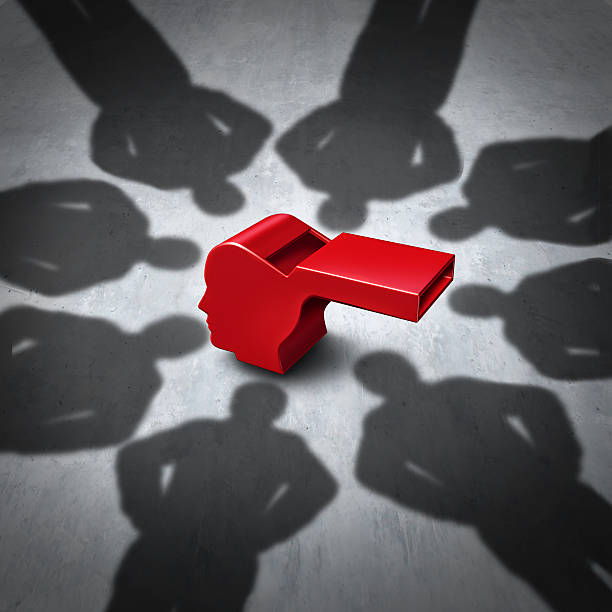In an era where transparency and accountability are increasingly prized in both public and private sectors, whistleblowers play a pivotal role. These individuals, often employees within organizations, step forward to expose wrongdoing, corruption, or unethical practices. While their actions can lead to significant positive change, whistleblowers often face severe personal and professional risks.
The Role of Whistleblowers
Whistleblowers are crucial in maintaining transparency and accountability within organizations. By exposing corruption and unethical practices, they help prevent further damage and foster an environment of integrity. Sherron Watkins' warnings about Enron’s accounting fraud highlight the profound impact whistleblowers can have on society.
Exposing Corruption: Whistleblowers bring to light illegal activities and corrupt practices that would otherwise remain hidden. This exposure is essential for upholding the rule of law and ensuring that organizations operate within legal and ethical boundaries.
Enhancing Accountability: By revealing wrongdoing, whistleblowers hold individuals and organizations accountable for their actions. This accountability is vital for deterring future misconduct.
Promoting Ethical Practices: Whistleblowers often act out of a sense of moral duty, aiming to promote ethical behavior within their organizations. Their actions can lead to reforms and the establishment of more robust ethical standards.
The Risks Faced by Whistleblowers
Despite their important role, whistleblowers often face significant risks. These include professional retaliation, legal repercussions, and personal hardships.
Professional Retaliation: Whistleblowers frequently encounter hostile work environments, demotions, or even termination. Their actions can lead to isolation from colleagues, loss of career opportunities, and damage to their professional reputation.
Legal Repercussions: In some cases, whistleblowers face legal challenges, including lawsuits or criminal charges, particularly if they have disclosed confidential or classified information. The legal battles can be financially draining and emotionally taxing.
Personal Hardships: The stress of whistleblowing can take a toll on whistleblowers; mental and physical health. They may experience anxiety, depression, and other stress-related illnesses. Additionally, their personal relationships can suffer due to the strain and public scrutiny.
Why Whistleblowers Face These Challenges
Several factors contribute to the risks whistleblowers face, including organizational culture, lack of legal protections, and societal attitudes.
Organizational Culture: Many organizations prioritize loyalty and conformity over transparency. This culture can discourage employees from reporting misconduct and create a hostile environment for those who do.
Lack of Legal Protections: Inadequate legal frameworks often leave whistleblowers vulnerable to retaliation. While some countries have enacted whistleblower protection laws, enforcement is inconsistent, and loopholes exist.
Societal Attitudes: Whistleblowers can be perceived as traitors or troublemakers, leading to social ostracism. This perception can deter potential whistleblowers from coming forward and amplify the challenges faced by those who do.
The Impact on Businesses
Whistleblowing has profound implications for businesses, both positive and negative.
Positive Impacts:
Improved Transparency: Whistleblowing encourages a culture of transparency, which can enhance the organization’s reputation and build trust with stakeholders.
Prevention of Future Misconduct: Exposing wrongdoing can deter others from engaging in similar behavior, leading to a healthier organizational culture.
Legal and Financial Savings: Addressing issues promptly can prevent legal battles and financial losses that may arise from prolonged unethical practices.
Negative Impacts:
Short-Term Disruptions: Whistleblowing can lead to immediate disruptions within the organization, including internal investigations and public scrutiny.
Reputational Damage: Public revelations of misconduct can damage the organization’s reputation, leading to loss of clients, partners, and investors.
Financial Costs: Legal battles and potential fines can result in significant financial costs for the organization.
How Society Can Better Protect and Support Whistleblowers
To encourage whistleblowing and protect those who come forward, several measures can be implemented at organizational, legal, and societal levels.
Strengthening Legal Protections: Comprehensive Whistleblower Laws: Governments should enact robust whistleblower protection laws that cover a wide range of sectors and ensure strong enforcement mechanisms.
Anti-Retaliation Provisions: Laws should include clear anti-retaliation provisions, protecting whistleblowers from job termination, harassment, and other forms of professional retaliation.
Confidential Reporting Channels: Establishing confidential and anonymous reporting channels can protect whistleblowers’ identities and reduce the risk of retaliation.
Creating Supportive Organizational Cultures: Ethical Leadership: Organizations should promote ethical leadership, where leaders model and encourage integrity and transparency.
Whistleblower Support Programs: Implementing support programs, such as counseling services and legal aid, can help whistleblowers navigate the challenges they face.
Regular Training: Conducting regular training sessions on ethical behavior and the importance of whistleblowing can create a more supportive culture.
Conclusion
Whistleblowers are often unsung heroes who risk their careers and personal well-being to expose wrongdoing and promote transparency. While their actions can lead to significant positive changes, they also face severe retaliation and personal hardships. To better support and protect whistleblowers, it is crucial to strengthen legal protections, create supportive organizational cultures, and shift societal attitudes.
By recognizing the vital role whistleblowers play and implementing measures to safeguard them, society can encourage more individuals to come forward. This will ultimately lead to more transparent and accountable organizations, benefiting everyone. Whistleblowers should not be viewed as traitors but as champions of integrity and transparency, deserving of our respect and protection.
